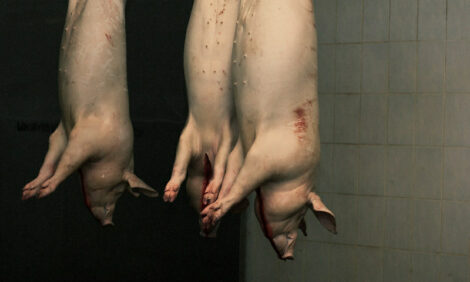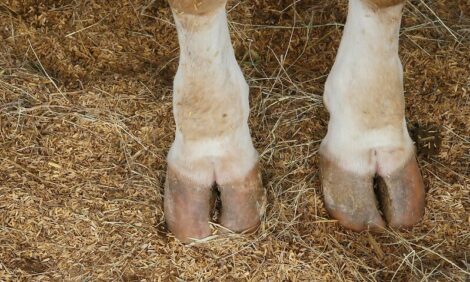



CME: Regionalisation Important for Animal Trade
US - Last week’s announcement that the United States and Brazil had agreed to postpone Brazilian retaliation against the US in the WTO cotton dispute has the possibility to impact US supplies of beef and pork, according to Steve Meyer and Len Steiner.The case stems from Brazil’s complaint to the WTO that support programmes for US cotton producers violated WTO rules. Brazil won the case and the right to retaliate against other US products. The agreement to postpone that retaliation includes a commitment to recognise Brazil’s state of Santa Catarina as free of trade disrupting diseases such as foot and mouth disease and classical swine fever. Such recognition would mean that Brazil could export fresh pork and beef from Santa Catarina to the US Brazil is the world’s largest exporter of beef (chart below) and the world’s fourth largest exporter of pork (bottom chart) if the EU-27 is consider one exporting entity. It should be noted that Brazil exports grass-fed or minimally-fed beef. It is comparable to the product.


Regionalisation is an important concept for world trade in animal products. It allows countries that have outbreaks of reportable diseases to either eliminate the disease(s) from specified areas in order to export from them or to limit the disease(s) to a given area in order to export from the rest of the country. Brazil has been pushing on trading partners for some time to recognise Santa Catarina’s status. This move by the US will likely provide Brazil some bargaining power with Japan — an attractive market for highvalue pork products. Brazil cannot compete with the US, Canada or Chile in Japan with fresh/chilled product but it can be an effective competitor in the frozen pork market.
In a letter to US Trade Representative Ron Kirk and Secretary of Agriculture Tom Vilsack, the National Pork Producers Concil (NPPC) urged the US government to use this opportunity to push for science-based policies in Brazil as well. Specifically, NPPC stated its continue frustration about Brazil’s “unjustified trichinosis-related import restrictions” and plant-by-plant certification of US pork packing plants. Whether US officials can use their current position of leverage remains to be seen.
Trichinosis is caused by trichinella, a parasite that was once common in US pigs. Trichinella is the primary reason that consumers tend to overcook fresh pork: Their mother or grandmother told them there was something in pork that needed to be cooked to death. And indeed there once was. But modern hog production systems have virtually eliminated trichinella from the US hog herd. In fact, a USDA-sponsored monitoring programme in the late 1990s had a tough time finding pigs infected with the parasite. They did find a few pigs fed outdoors that had trichinella but suspected that the infection came from wildlife. Trichinella is still relatively common in raccoons and bears and virtually all human trichinosis cases are traced to consumption of wild game. But trichinella remains an issue for US pork exports, primarily to the EU which insists that carcasses be tested before US product will be accepted.
Please see pages 2 and 3 of today’s DLR (link below) for information about CME Group’s upcoming launch of the new Distillers Dried Grain (DDG) Futures contract. The contract will begin trading on 26 April and will provide ethanol producers a tool to hedge DDG revenues and livestock producers a tool to hedge DDG costs. Watch for more information in tomorrow’s DLR.
Further Reading
| - | You can view the full report by clicking here. |






